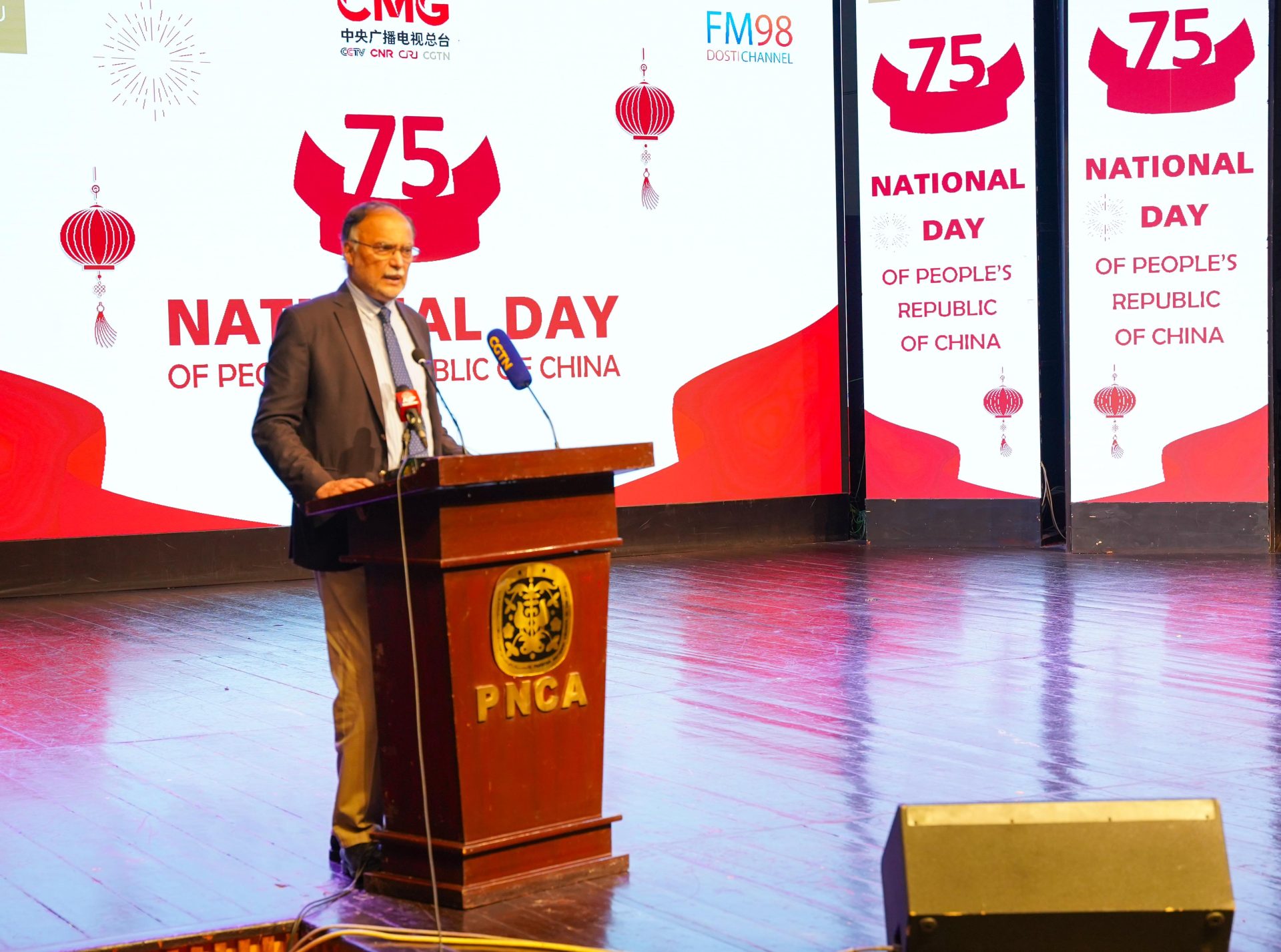 26 Sep 2024 Islamabad: Planning Minister Ahsan Iqbal addressed a ceremony in connection with the National Day of China in Islamabad on Thursday. The ceremony was organized by China Global Television Network and featured folk performances by cultural troupes from Pakistan and China.
26 Sep 2024 Islamabad: Planning Minister Ahsan Iqbal addressed a ceremony in connection with the National Day of China in Islamabad on Thursday. The ceremony was organized by China Global Television Network and featured folk performances by cultural troupes from Pakistan and China.
The Minister said that peace, consistency of policies and implementing reforms in all sectors are prerequisites for progress and development of any country and we can learn this from China.
He stressed the need to vigorously follow the model of China in order to make profound progress in Pakistan.
Acknowledging China’s role in Pakistan’s national development, the Minister said China brought investment in Pakistan when no country was willing to make investment in the country. He said a number of projects were started in the country under the banner of China Pakistan Economic Corridor
Reflecting on China’s remarkable rise over the past few decades, Prof Iqbal praised the country’s ability to lift 800 million people out of poverty in just three to four decades—an achievement unprecedented in human history. He emphasized that China’s success lies not only in its modernization but also in its preservation of a unique cultural identity.
“China’s success has shown that modernization does not have to come at the cost of losing one’s cultural roots,” Iqbal remarked.
China’s distinctive approach—what he called the “Chinese style of development”—has allowed it to forge its own path, independent of Western models of democracy and capitalism. This, Prof Iqbal suggested, offers a powerful lesson for Pakistan: every country can find its own way to prosperity, shaped by its unique culture, history, and circumstances.
Central to Prof Iqbal’s speech was his role in the China-Pakistan Economic Corridor (CPEC), a flagship initiative under China’s Belt and Road Initiative (BRI). He reflected on his pride in transforming CPEC from a concept on paper into a $25 billion reality within just three* years. The impact of CPEC has been profound: from building thousands of megawatts of electricity-generating capacity that helped end Pakistan’s chronic power shortages to creating modern motorways, fiber optic networks, and transforming Gwadar into a bustling port city.
However, Prof Iqbal cautioned against complacency, recalling the damaging consequences of political instability and policy reversals in Pakistan. He recounted how irresponsible statements and scandalizing of Chinese investments led to a loss of investor confidence, with many opting to invest in other countries like Cambodia instead.
“The cost was borne by Pakistan and its youth,” Iqbal lamented, stressing that consistent policies are vital to sustaining long-term development.
Concluding the speech, Ahsan Iqbal stressed upon the need to reject the narrative of elements involved in fanning anarchy and chaos in the country.
Editor: Kamran Raja